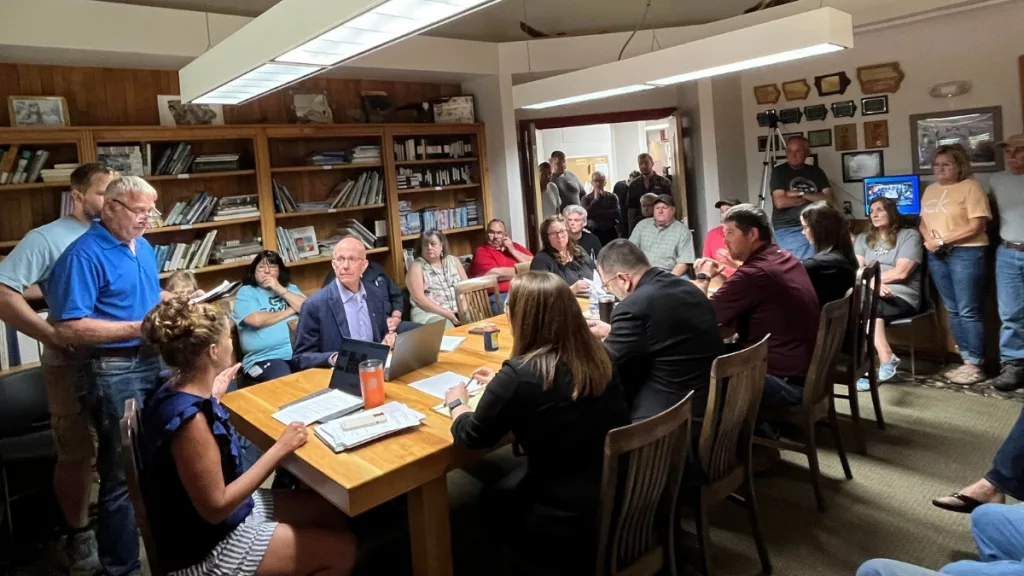A group of around three dozen rural Carroll County residents appealed to the board of supervisors this (Monday) morning to reduce or eliminate the two-mile zoning limit that surrounds the City of Carroll. Since at least 1995, and potentially as far back as 1984, an agreement has existed between the city and county for the council to control zoning regulations within two miles of city limits. Former County Supervisor Marty Danzer outlined the group’s purpose for coming to the supervisors.
Your browser doesn’t support HTML5 audio
One of the group’s primary complaints is that their properties are subject to regulation by the city council, which they have no say in elections. There is some rural representation on the city’s planning and zoning commission via two members who reside in the two-mile limit. However, the commission acts solely as an advisory board, and the final decision on zoning issues is still up to the city council. Lisa Danzer says the limit is about more than representation, as the current system is difficult to navigate for residents trying to go about things the right way.
Your browser doesn’t support HTML5 audio
Another resident, Gary Geister, says it is unreasonable to expect rural residents to abide by the same rules as those who live in city limits when they don’t have a vote on the council.
Your browser doesn’t support HTML5 audio
Carroll City Manager Aaron Kooiker says the city’s involvement in the two-mile limit is small except in specific cases.
Your browser doesn’t support HTML5 audio
The group emphasized that they are seeking to eliminate the two-mile limit or at least reduce it to a quarter-mile or half-mile. The board did not take formal action at Monday’s meeting, but the supervisors did indicate they would consult with the county attorney to find potential solutions. The topic is likely to appear on future county agendas.
